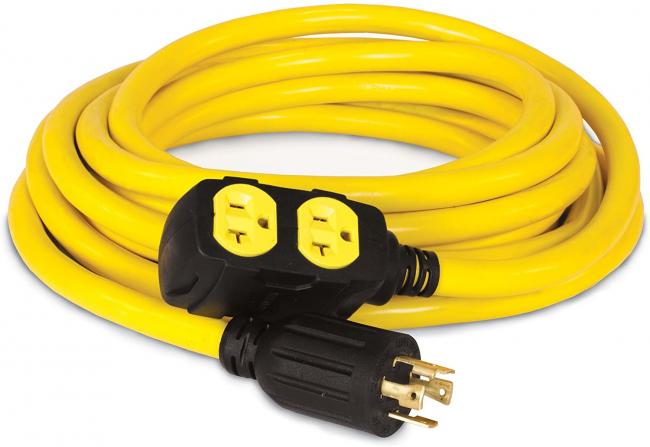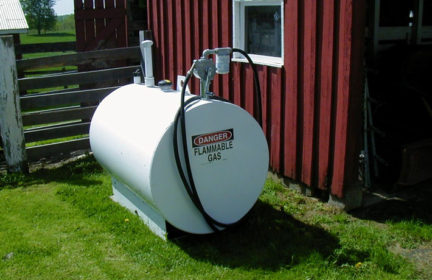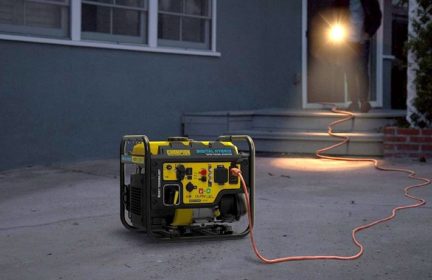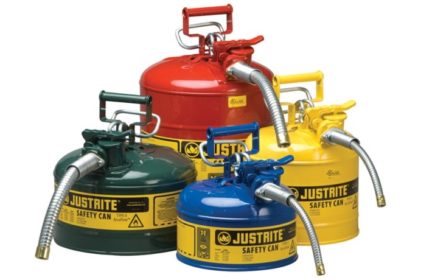An aid memoir for others
Link in my first post
Does Propane Go Bad – Propane Shelf Life – How Long Can You Store Propane – Does Propane Gas Go Bad – Does LPG Go Off
LPG-propane does not go bad. LPG-propane shelf life is indefinite. LPG does not go off. Unlike gasoline and diesel fuel, LPG-propane gas does not bad or degrade with time. How long can you store propane and does LPG (bottled gas) go off or expire are both common questions. Because propane does not go bad, it is the perfect fuel for emergency generators.
But what do you do with the bad petrol or diesel fuel? You can’t just dump it.
How Long Does LPG Last
How long does LPG last… indefinitely. LPG shelf life is unlimited. The only limiting factor is the gas bottle itself. Assuming it is taken care of and not allowed to rust, it could last 20 years or more. Gas bottles typically need re-ispection every 10 years to refill the gas bottle but you can use it beyond 10 years, if safe to do so.
Does Propane Go Bad – Propane Shelf Life – How Long Can You Store Propane – Does Bottled Gas Go Off
Gasoline (petrol) and diesel fuel degrade with time. Storing LPG for 10 to 30 years or more would not be an unreasonable expectation, with the limiting factor being the container. Assuming that the LPG cylinder and valve are in good shape, you shouldn’t have a problem.
You can store propane for a very long time as LPG-Propane does not go bad. A propane shelf life of 30 years or more would not be an unreasonable expectation, as LPG-propane does not go bad or off. Different from fuel types that degrade with time, like gasoline and diesel, propane fuel does not expire nor does its effectiveness deteriorate with time. You can store propane forever, if you are talking about the gas itself. Propane tanks typically need re-ispection every 10 years.
Does Propane Go Bad
Whilst not a problem with LPG-propane that does not go bad or off, to prevent the problem of bad petrol or diesel fuel, you have to go through the effort and expense of changing out the fuel supply on a regular basis.
People ask the question “How long can you store propane?” in many ways:
Does propane go bad?
LPG-propane shelf life?
How long can you store propane?
Does propane gas go bad?
What is the shelf life of propane?
Does LPG go off?
Does bottled gas go off?
Does propane go bad over winter?
How long does LPG last?
How long does bottled gas last?
Does propane gas go bad over time?
Propane tank shelf life?
Shelf life of propane tank?
How long does BBQ gas last?
How long will propane store?
How long does propane store?
So, a lot of different ways to ask the same question.
Assuming that the LPG cylinder and valve are in good shape, you shouldn’t have a problem with LPG-propane shelf life.
This makes LPG the near perfect choice for emergency generators and similar off-grid survival equipment.
LPG – propane – does not go bad or degrade through any natural process and is also referred to as natural gas liquids – NGL.
The only limitation on how long can you store propane is the durability of the container – gas bottles, cylinders or tanks.
That and cobwebs!
Does Propane Go Bad Over Winter – Does Propane Gas Go Bad Over Time
Propane does not go bad over winter nor does propane go bad over time. There is no reason for concern as propane (bottled gas) never goes off or bad at any time. Propane lasts indefinitely.
LPG Expiry Date is Not LPG-Propane Shelf Life – LPG-Propane Does Not Expire
When people talk about “LPG expiry date”, they are actually talking about the gas cylinder inspection date, not the LPG-propane going bad itself. It is not LPG-propane shelf life. As previously mentioned, the LPG-propane gas never goes bad, off or expires.
Gas cylinders must be inspected periodically.
The timing typically runs from 5 years to 15 years, with 10 years being the most common time period for gas bottle expiry.
Gas cylinder expiry can vary by country, as well as type and size of the vessel.
Propane Tank Shelf Life – Shelf Life of Propane Tank – LPG Gas Cylinder Life
Propane tank shelf life (shelf life of propane tank) may also refer to the ± 15 year LPG tank-gas cylinder inspection expiry, as opposed to the longevity of the gas itself. Propane tank shelf life (shelf life of propane tank 10) is a finite period that varies by country.
How Long Can You Store Propane: Indefinitely
You can store propane indefinitely. As previously stated, LPG-propane does not go off or bad and the propane shelf life is unlimited. The limiting factor to how long you can store propane would be the propane cylinder.
Durability of LPG Gas Bottles – Propane Tanks
High quality galvanised LPG gas bottles or cylinders (propane tanks) can last 30 years or more and the LPG-propane never goes bad. There is no water or oxygen inside a full sealed gas bottle so they typically do not rust from the inside. If they are stored in a cool dry place, exterior rust would be slow to develop, particularly with a galvanised cylinder or tank.
There are also aluminium and the newer composite cylinders that simply cannot rust, as they do not contain steel.
Some composite cylinders are also translucent, meaning you can see the liquid LPG and very easily check the fill level.
Cylinder re-inspection requirements typically apply to the refilling of the cylinders but place no time restrictions on the use.
These regulations can vary by country so it is best to check if this is the case for you, as well.
High quality valves and fittings are also a must.
Rubber hoses, that can perish, are best avoided in favour of copper tubing or piping.
Petrol – Gasoline – Shelf Life vs LPG-Propane Shelf Life
Unlike unlimited propane shelf life, petrol (gasoline) has a very limited shelf life. Quality petrol should be good for six months, when stored properly.
However, petrol (gasoline) will break down slowly over time due to the separation of the components, with gummy, sticky resin deposits and layers of varnish.
“Stale fuel” can cause corrosion of system components.
Petrol should be stored in an airtight container that does not allow the petrol to vent away the volatile components.
Petrol has many components with different properties.
When petrol is kept in an open container, eventually it will completely evaporate but the components will evaporate at different rates, affecting performance.
Preventing water contamination and oxidation will extend the shelf life.
It also helps if the container is as full as possible, to decrease the exposure to air (oxygen).
Petrol containing ethanol is even more problematic, as ethanol is hygroscopic – attracting moisture from the atmosphere.
Ethanol is also harmful to rubber seals and components.
The addition of a fuel stabiliser can slow the oxidation process.
Fuel stabiliser can extend petrol shelf life to about 15 months.
The real problem is how do you dispose of the petrol after it goes off?
Diesel Fuel Shelf Life vs Propane Shelf Life
Diesel fuel also goes off, forming gummy deposits, varnish, sediment, microbial slime and sludge whilst LPG-propane (bottled gas) never goes bad or off. This can block fuel filters, lead to carbon and soot deposits on injectors and other combustion surfaces, and increase the frequency and cost of filter changes. Diesel vs propane shelf life is no contest.
It also becomes dark and stratified (see above).
Exposure to water, air and heat are the three things that facilitate degradation.
Diesel that has gone off makes black smoke and may even prevent the engine from starting.
Ironically, the newer low sulphur diesel fuels are actually more prone to degradation problems.
Microbial growth – fungus, bacteria & algae – is part of the process that breaks down diesel fuel.
Higher sulphur levels used to inhibit this growth, providing a much longer shelf life.
The new lower sulphur products lacks this natural preservative effect.
Microbes can now multiply more quickly in the fuel, allowing the creation of biomass formations and production of acids that degrade the fuel.
“Diesel fuel can be stored 6 months to 1 year without significant fuel degradation if you keep it clean, cool and dry.” according to Exxon.
BP says that under normal storage conditions diesel fuel can be expected to stay in a useable condition for:
• 12 months or longer at an ambient of 20°C.
• 6-12 months at an ambient temperature higher than 30°C.
With the addition of fuel stabilisers – with antioxidant and biocide – diesel fuel can last for 3 years or more.
Once again, the real problem is how do you dispose of the diesel after it goes off?
Best Fuel for Emergency Generators & Off-Grid Survival – LPG-Propane Never Goes Bad
With an indefinite LPG-propane shelf life, LPG is the perfect fuel for emergency generators and survival in the events of catastrophic emergencies and other unforeseen circumstances. LPG can be used to power generators, but is can also be used directly for cooking, heating, hot water, and most machinery that is powered by small internal combustion engines.
There are LPG versions of water pumps, small tractors, and an assortment of tools.
The list of LPG – propane – applications is almost endless.
A larger storage tank could also be used as autogas, if the vehicle has had a gas conversion.
You could literally provide your entire energy needs with just LPG and, with sufficient storage, you could do it for many years.
Nothing compares to LPG-propane shelf life for emergency fuel.



